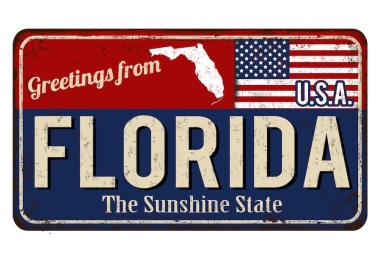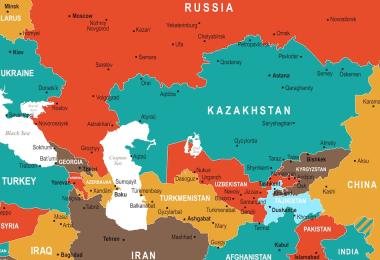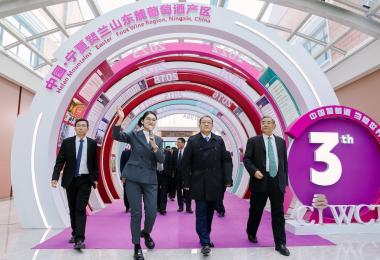As the fifth-generation member of the family behind one of the world’s best-known wine-brands, Bill Hardy has seen Hardys under three types of ownership. He’s seen acquisitions and mergers. He’s seen international expansion. And he’s seen wines with his family name on the label go from being revered to being supermarket loss leaders. Now, he says, the company has bright prospects.
Strong beginnings
The Hardys story began in 1850 when Thomas Hardy and his family set sail from England, arriving in South Australia 12 weeks later. Fresh off the boat, Hardy found a job looking after cattle for a settler called John Reynell.
Reynell was South Australia’s first wine producer and his vineyard proved to be a source of fascination for Hardy. A gold rush in the 1840s gave Hardy his chance, and the young Englishman made money ferrying supplies to the gold fields. With his earnings, he bought himself a farm.
The first wine vintage came off this Bankside property in 1857. By 1863, Hardy was making 1,500 gallons of wine, participating in the national wine boom. Unfortunately, Australia’s first wines were generally poor and Hardy became known not only for the quality of his own wines, but for his efforts to raise the overall quality and establish an Australian industry. In 1873 he acquired Tintara farm in McLaren Vale from a Dr A.C. Kelly, whose books had introduced wine science and technical viticulture to Australia. Unfortunately, Dr Kelly was less a businessman than an academic, and a lack of capital ruined his vineyard enterprise. Hardy was able to buy the 700-acre property, complete with cellars and a house, just in time for the export boom of the 1880s and 1890s.
Thomas Hardy and Sons continued to expand through world wars, booms, busts and family tragedy and, in 1982, bought Chateau Reynella, the property where Thomas Hardy had worked 130 years earlier. In 1986 the company won a coveted award for its export achievements; the business was then run by sailor Sir James Hardy, who captained the Australian yacht in three America’s Cup challenges. Hardy’s competitiveness on the water was matched by his ambitions for the family firm and was at the helm when it bought the Tuscan Barone Ricasoli business, British distributor Whiclar and Gordon, and a new Languedoc venture called Domaine de la Baume.
Corporate direction
By the early 1990s, it was clear the company had bitten off more than it could chew. In 1992 it merged with the Berri Renmano cooperative (BRL), a maker of bulk wines. The CEO of the new public company, BRL Hardy Limited, was Berri Renmano’s Stephen Millar, a former accountant who’d been in wine for nine months, after leaving mop and brush manufacturer Sabco. His lack of experience and the cultural differences of the two companies led analysts to question BRL Hardy’s prospects. They also had doubts over the fragmented nature of the business. The Italian estate may have been sold back to the Ricasoli family – for a fraction of the purchase price – but the combined business on whose board of directors Bill Hardy sat, still had nine wineries, nine vineyards, four bottling and packaging plants, and the majority shareholding in Whiclar and Gordon. To those analysts’ surprise, however, the company seemed unstoppable. Wine quality was not affected by the marriage to a bulk producer, while prestige sparkling wine launches established the company as one of Australia’s preeminent producers of this style. In 1993, exports to the then lucrative UK market increased by 97.6%, helping to grow its market share there by 2003 to 25%. Between 1992 and 2001, Group sales grew from A$140.9m to A$757.6m ($13.3m to $716.4m). And the acquisitions kept coming: properties in Western Australia, Coonawarra and elsewhere. Hardy says the company floated at the perfect time. “It brought in the extra finances that allowed us to accelerate our desire to move into different regions of Australia.”
But markets are fickle. After a reduced full-year profit forecast of 15% for 2002, the share price dropped to its lowest level in two years. This was the background to the merger in 2003 with US company Constellation Brands Inc. While the marriage created the world’s largest wine company with $1.7bn in wine sales, the deal was built on weak foundations. Constellation’s $1.1bn investment in the Australian business was part of a set of costly investments that included Californian brands Clos du Bois, Robert Mondavi and Ravenswood. Constellation was already noted for having a high debt/equity ratio, but was confident that they could substantially build their international sales. These ambitions proved hard to achieve, however, and the crisis of 2008 made the debt harder to finance.
Bill Hardy had watched the company bearing his family name grow into a global brand. In 2008 he had to watch a fire sale that left an enduring trail of bitterness in Australia. Longstanding grape-grower contracts were cancelled, workers were laid off as bottling lines were closed and famous properties, such as the Clare Valley’s Leasingham winery, were sold. The John Reynell plot was sold to a developer who replaced the vines with suburban houses. As wine writer Philip White put it, Constellation had destroyed “a heritage-listed vineyard at least the historical equivalent of Grange or Hill of Grace to make a quick $5m in a rude housing malignancy”.
But these sales were not enough. In 2002, net profit was A$72.2m. In the first three quarters of 2010, the operating profit was just A$2.5m. That year, under heavy shareholder pressure, Constellation announced it was selling a majority of BRL Hardy and associated Australian, South African and UK businesses – collectively known as Constellation Europe – for $290m. Just seven years after buying BRL Hardy, Rob Sands, Constellation’s CEO said: “The business is no longer consistent with strategy.”
Sold to Australian private equity firm CHAMP for $290m, the business was renamed Accolade. For a year, the new company continued to be run by the previous Constellation Europe CEO, Troy Christensen, but in November 2012 he left abruptly “by mutual agreement”. That departure brought the management back into Australian hands, with the UK and Europe under Paul Schaafsma from Australia Vintage Ltd (McGuigan) and Michael East taking responsibility for Australasia.
New focus
Speaking to Decanter, Bill Hardy acknowledged that the relationship would end one day. “The chances are that in the medium term they will want to sell us on, or list us,” but before that happens, CHAMP will add value. Their commitment is already evident in an expensive revamp of the Hardys range, the launch of a new William Hardy premium range and the announcement of $15m investment to “revitalise” the brand. At the heart of the new strategy is a focus on quality and prestige. For Hardy, working with the new owners means the company can now think long term again. “Our return on investment in the last couple of years has been spectacular.”
Reflecting on the history, he says that public ownership and the wine trade don’t work terribly well together, he says. The BRL Hardy flotation was a lucky break, because the entire Australian category was going through incredible growth and the profits flowed. Times were tougher for Constellation, however, which had to make quarterly earnings reports, so “there were some incredibly short-term decisions made, whether it was selling an asset or pruning to get the quarterly figures right.”
Hardy has a classic Australian personality – laid back and ready for a laugh, even when he’s talking about difficult times. “I won’t say it wasn’t incredibly painful for me. It was awful.” But, he says, his life in the company, where he’s been for 42 years, both as winemaker and spokesman, has “been extraordinary. I had almost 20 years as a fully-owned family company – I knew nothing else until we floated in 1992.” He adds that despite the different managements, the quality of the winemaking itself has almost never varied. “Hardys has always been outstanding at the production end of the business.”
Paul Lapsley, chief winemaker, points out that Hardys wines have won over 2,800 awards in 10 years. “You don’t win that many unless you’re good.”
When announcing the $15m further investment in Hardys, CHAMP managing director John Haddock said: “We are going to make a good company a great company.” The smile on Bill Hardy’s face suggests that he’s a lot happier with the people who have the responsibility for the business that bears his family name. And while he doesn’t expect to be around for another 160 years, he’s certain the company will be.








